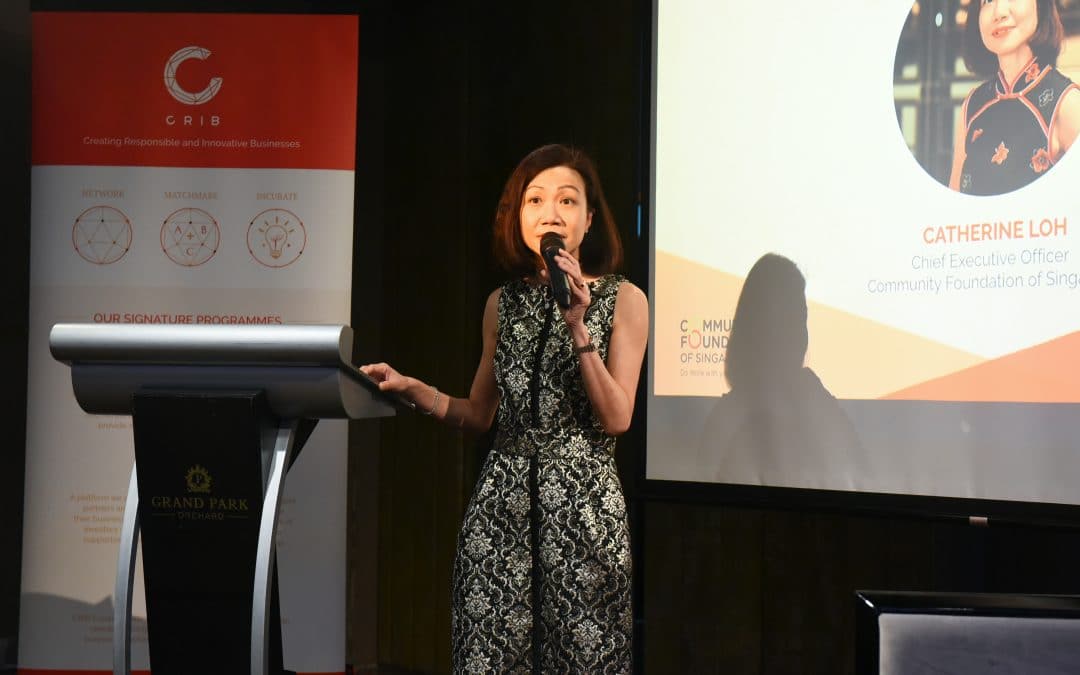Charting your legacy


I think we can all agree every individual has something unique to give back and offer to society. And yet, when thinking about legacy, how often do we realise that every action we take, however large or small, is actually creating our legacy? Perhaps some of us believe legacy giving is only for wealthier individuals, or that legacy giving can only be defined in financial terms.
It’s important to realise legacy is much more than just financial in nature. Your legacy also includes your personal or business values, the values you have inculcated in your children. It encompasses the giving of your time, expertise and even your resources to empower someone in need. Think about creating a legacy as living a life of generosity, in ways that make meaningful social impact while aligning to your values.
If you’re passionate about a cause, you don’t need to wait until you’re richer, older and retired to start thinking about taking action. Today, with technology, new giving channels and opportunities for collaboration with a wider community are already available and being created each day. As a donor in this exciting era of knowledge-sharing, there are many opportunities to learn about causes you care about and how you can contribute.
For some of you, you might be moving on from ‘success’ to ‘significance’. “How will I be remembered in a hundred years’ time?” “How can I leave a better world for future generations?” As two prominent families shared at our recent CRIB x CFS Legacy and Impact event, leaving a legacy also means preparing your next generation to become responsible stewards of your family’s culture of giving. This often means setting up a framework and sharing your family’s values, so that your children are empowered to continue the good work you have begun.
If you’re wondering how you could start to plan for legacy giving, here are three key ideas to help you along your journey:
Start the conversation
Identify your interests, values and the impact you want to make, so that you can find a focus for your giving.
Consider your structure
Setting up a fund helps to structure your philanthropic activity, improve strategic decision-making and better measure outcomes.
View philanthropy as a journey of learning
Learn more about issues on the ground, what the real needs are, and what are more strategic ways to make a change.
Many of our donors at CFS began from a place where they may not have had extensive histories in giving, but they have embarked on a journey to learn how they could chart their legacy, one action at time. I hope you will discover how philanthropy can be your way of life.
Catherine Loh
CEO
Community Foundation of Singapore
I think we can all agree every individual has something unique to give back and offer to society. And yet, when thinking about legacy, how often do we realise that every action we take, however large or small, is actually creating our legacy? Perhaps some of us believe legacy giving is only for wealthier individuals, or that legacy giving can only be defined in financial terms.
It’s important to realise legacy is much more than just financial in nature. Your legacy also includes your personal or business values, the values you have inculcated in your children. It encompasses the giving of your time, expertise and even your resources to empower someone in need. Think about creating a legacy as living a life of generosity, in ways that make meaningful social impact while aligning to your values.
If you’re passionate about a cause, you don’t need to wait until you’re richer, older and retired to start thinking about taking action. Today, with technology, new giving channels and opportunities for collaboration with a wider community are already available and being created each day. As a donor in this exciting era of knowledge-sharing, there are many opportunities to learn about causes you care about and how you can contribute.
For some of you, you might be moving on from ‘success’ to ‘significance’. “How will I be remembered in a hundred years’ time?” “How can I leave a better world for future generations?” As two prominent families shared at our recent CRIB x CFS Legacy and Impact event, leaving a legacy also means preparing your next generation to become responsible stewards of your family’s culture of giving. This often means setting up a framework and sharing your family’s values, so that your children are empowered to continue the good work you have begun.
If you’re wondering how you could start to plan for legacy giving, here are three key ideas to help you along your journey:
Start the conversation
Identify your interests, values and the impact you want to make, so that you can find a focus for your giving.
Consider your structure
Setting up a fund helps to structure your philanthropic activity, improve strategic decision-making and better measure outcomes.
View philanthropy as a journey of learning
Learn more about issues on the ground, what the real needs are, and what are more strategic ways to make a change.
Many of our donors at CFS began from a place where they may not have had extensive histories in giving, but they have embarked on a journey to learn how they could chart their legacy, one action at time. I hope you will discover how philanthropy can be your way of life.
Catherine Loh
CEO
Community Foundation of Singapore
- Related Topics For You: DONOR STORIES, DONOR-ADVISED FUND, LEGACY GIVING, OPINION, STORIES OF IMPACT



